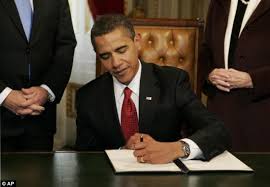Lanard leaving Bluewater for rival wind developer
One of the most recognizable faces among regional wind energy company executives, Jim Lanard, is leaving Bluewater Wind next week to join rival Deepwater Wind.
Today’s Wilmington News Journal reports that the move will be a promotion for Lanard “as he will serve as one of three managing partners who report only to the company’s board of directors.”
Like Bluewater Wind, Deepwater Wind is located in Hoboken, NJ.
Deepwater is participating with New Jersey’s largest energy company, PSEG, in developing a 350mw wind farm off the New Jersey coast. That joint venture, Garden State Offshore Energy, is one of three wind-energy developers selected by the New Jersey Board of Public Utilities to receive state grants to explore such offshore projects.
Lanard, who was Bluewater Wind’s head of strategic planning, functioned as the company’s media spokesperson during its protracted but ultimately successful effort to gain Delaware’s approval for a wind farm off the coast of Rehoboth Beach.
During the process, Lanard helped develop enough grassroots political support for the project among environmental groups, municipal leaders and the media to eventually convince an extremely reluctant Delmarva Power to enter into an agreement to purchase energy from the at-sea facility.
Lanard developed his political skills in the late 1980s as the lobbyist for PIRG (Public Interest Research Group), then a Ralph Nader-influenced and Rutgers University-based environmental activist organization. Among his most notable accomplishments was enactment of the state’ s Community Right to Know Act, legislation which was bitterly opposed by the business community.
Lanard went on to work for a New Jersey congressman, served as director of government relations and environmental programs for the Disney’s America project, and was executive director of the
New Jersey Environmental Lobby and the Clean Air Council in Philadelphia. He has extensive political relationships in New Jersey and Washington and has close ties to former Governor Jim Florio.
Interested in commenting? Use the block below. If it doesn’t appear, click on the tiny comments” link below. You may sign your comments or respond anonymously.
MORE ON WIND ENERGY:
Deepwater poaches exec from rival firm –Providence Business News
NJ offshore wind energy’s new gust of intrigue
Deepwater to tackle N.J. wind project – Providence Business News
NorthJersey.com: Partnership OK’d for offshore wind farm
BPU Selects Developer of NJ Offshore Wind Project
Huge Offshore Wind Farm Wins Approval – City Room – Metro – New York Times Blog
Wind-Power Politics – NYTimes.com
___________________________________________________
Try EnviroPolitics, our daily electronic newsletter, packed with environmental and political news, legislation and regulations for NJ, PA and NY. Get you own trial subscription FREE for 30 days!
Lanard leaving Bluewater for rival wind developer Read More »






